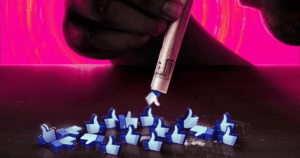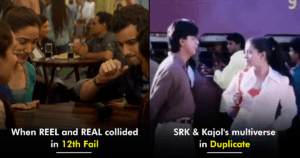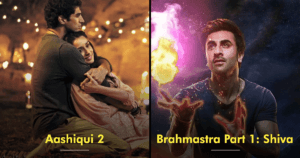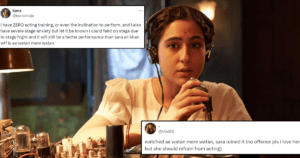We’ve grown up in a society that constantly creates barriers of different kinds. And hence, we’re set in our ways and thoughts to a point, where we don’t even realize when we casually use remarks that are racist. Bollywood also uses stereotypes as a comic relief, and even today there’s little to no representation of actors from different cultural ethnicities and backgrounds.
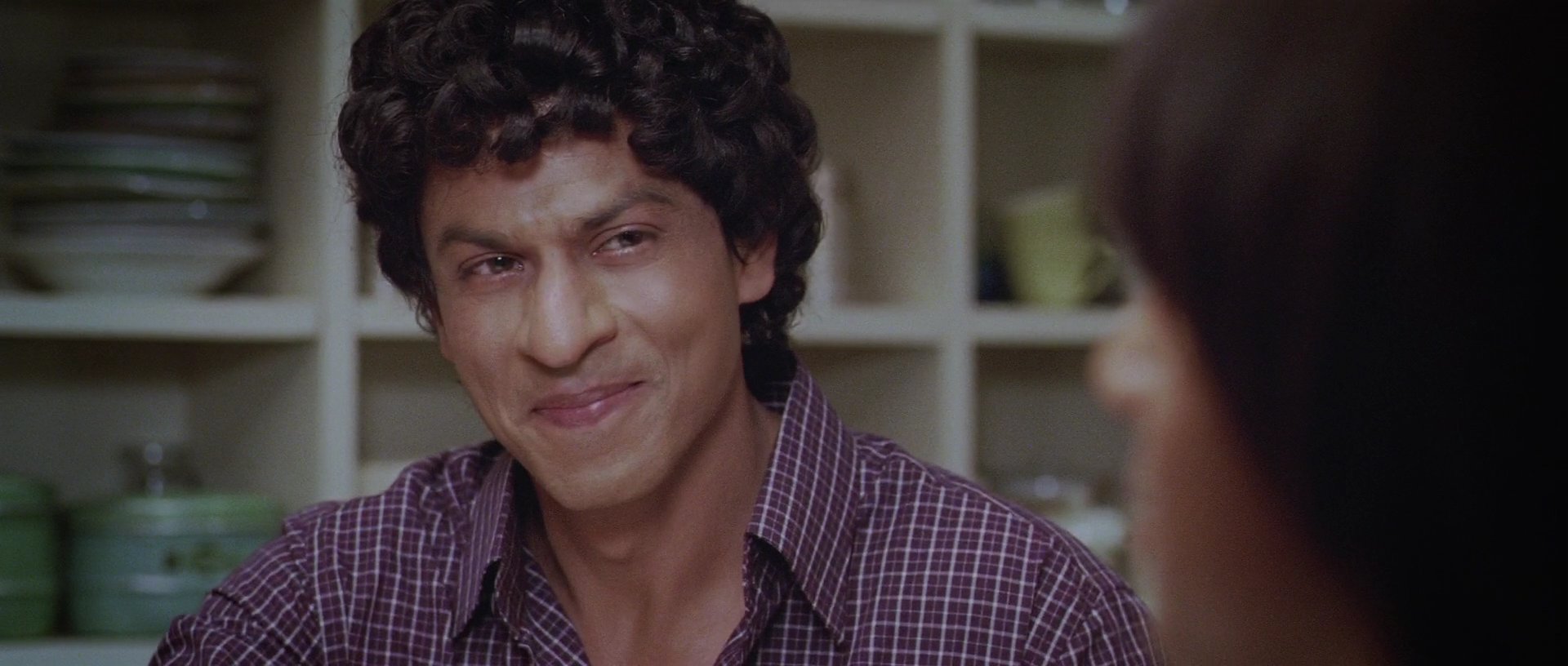
We’re so used to it, that at times, comments or biases even go unnoticed. It’s however important to talk about issues like racial bias and take a stand, in life and even when it comes to films and shows – because art has an impact.
And, these films and series raised a mirror to racial discrimination in our society:
1. Axone
The drama film that leaves us with a taste of the rich Naga culture, also delicately portrays the lives of people from the North-Eastern states, in cities like Delhi. In a scene from the film, Lin Laishram’s character Chanbi is teased by two men from her own society. She hears them objectifying her while talking about her as a ‘type’ because of her cultural background. When more people come to find out what happened, no one takes a stand for her – people either ask her to let it go or blame her, instead. The scene not only puts light on the sexism that exists but also the racial discrimination that pertains in our society.
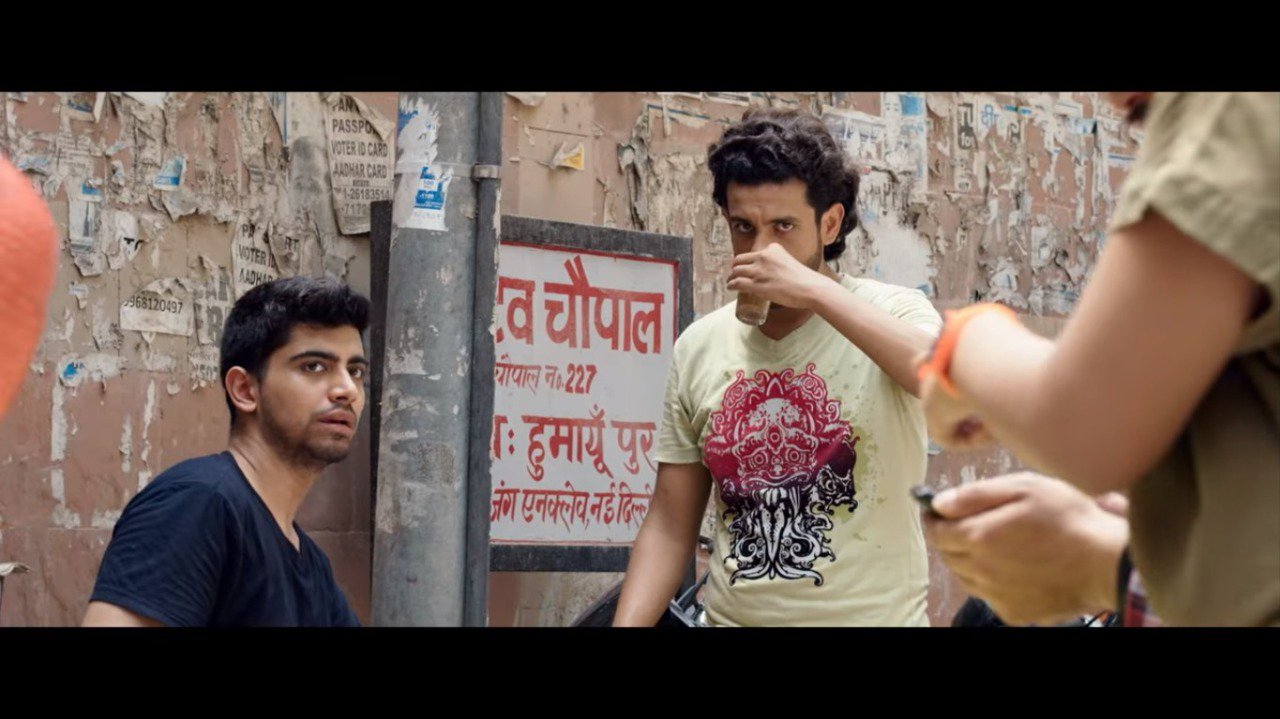
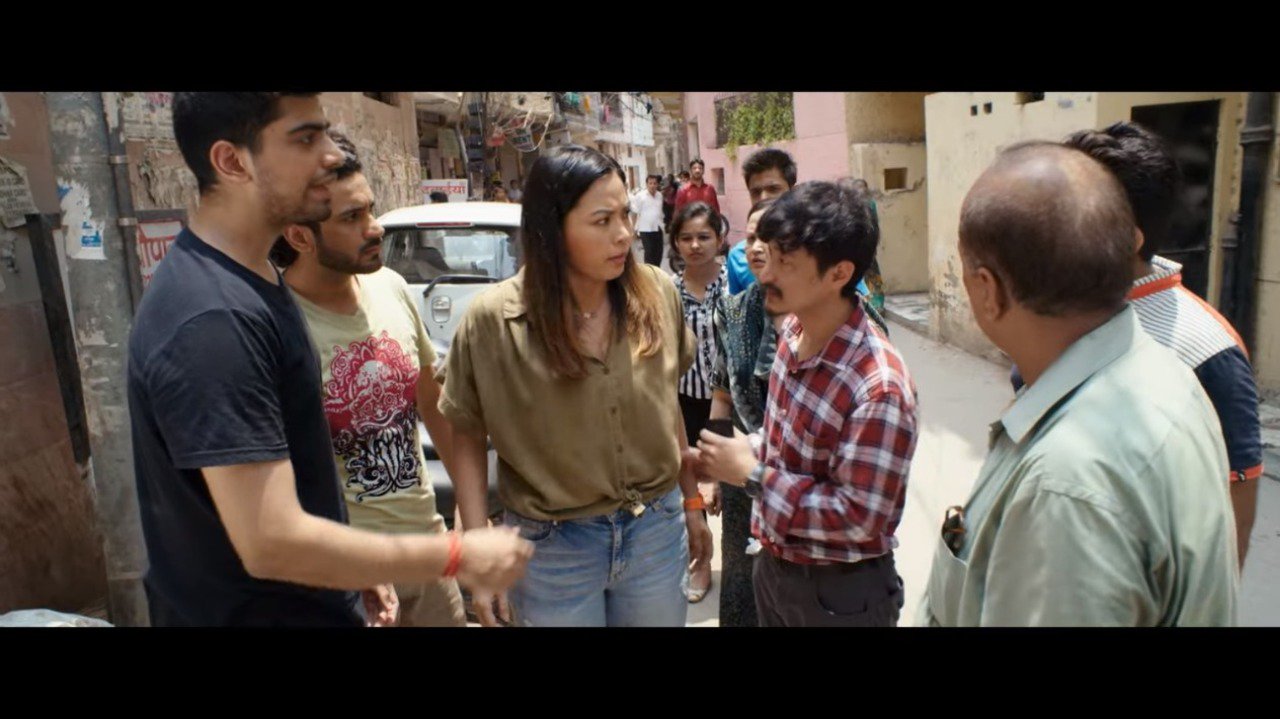
2. The Family Man
The second season of The Family Man surely made an impact for a lot of reasons – the constant schooling about Tamilians was one. In a scene from one of the episodes, JK excitedly mentions how he loves ‘South-Indian food’ only to impress Muthu, and Muthu responds explaining that there’s no one state or cuisine – to collectively call it ‘South-Indian’. We’ve hardly been exposed to any cultural ethnicity, when it comes to Bollywood and hence we consider the stereotypes portrayed in films as the real image – which is far from true. Through JK and Muthu, these stereotypes are not only addressed but also corrected.
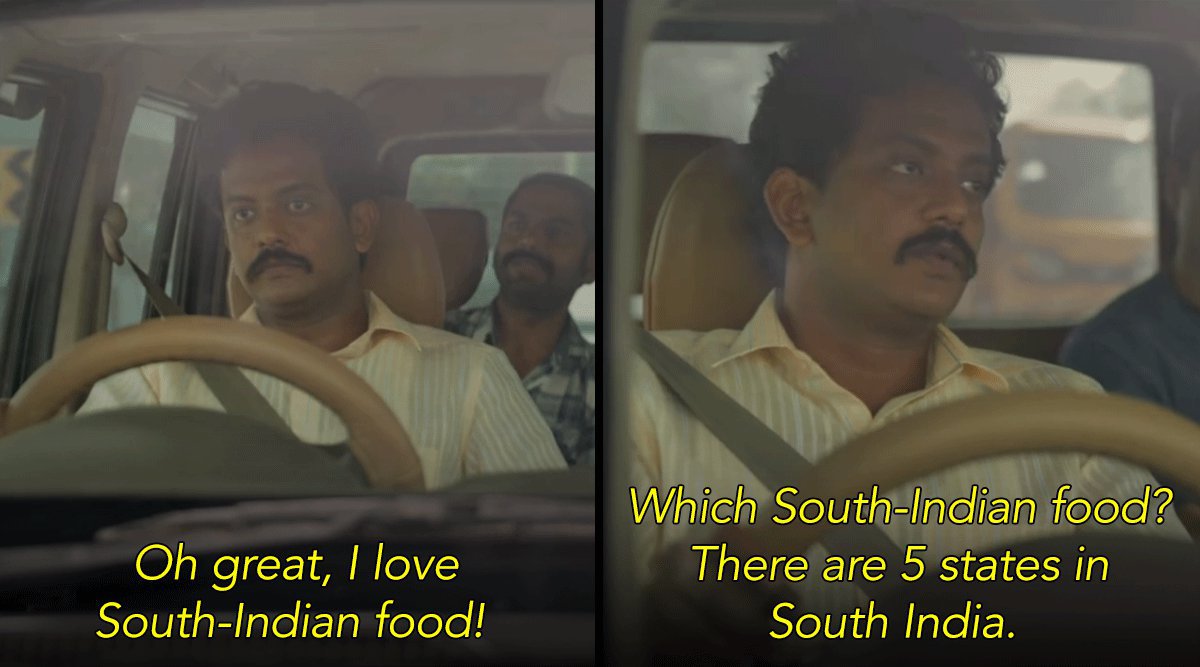
3. Chak De India
The film that left us with a newfound love for sports also put light on the racial discrimination and bias that still exists in our society. While welcoming and attending the players of the Indian women’s hockey team, Sukhi lal addresses Mary and Molly as ‘guests’. Understandably, they’re both unhappy with the treatment, given that they’re referred to, and treated as outsiders, while being a part of the same country and team, for that matter.
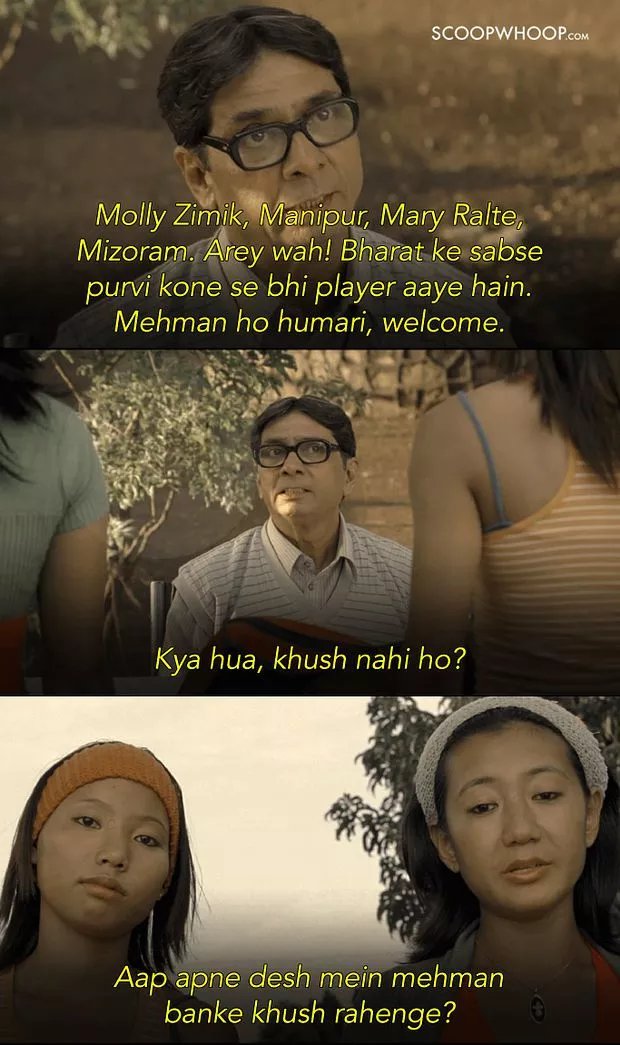
Similarly, when another player Gunjan enters, Sukhi lal goes on to joke about how there’s no difference in Telegu and Tamil, but Gunjan gives it back to him – rightly so. This small interaction was a comment on the deep-rooted ‘casual stereotypes’.
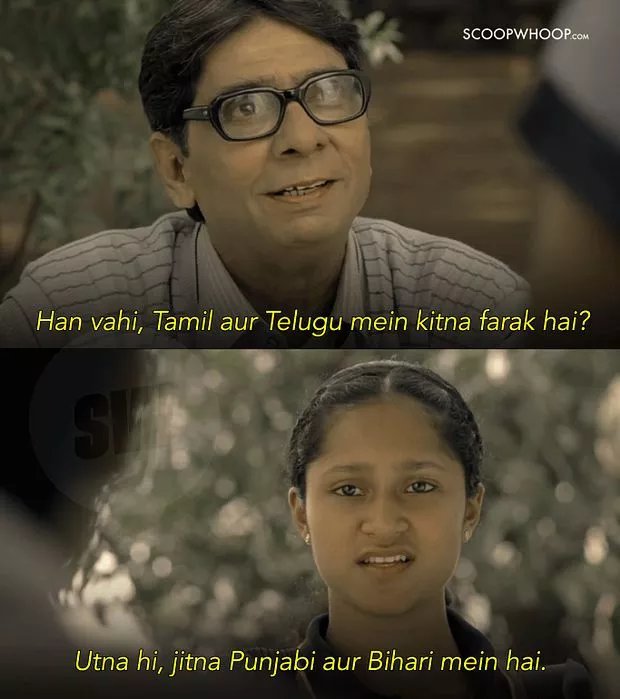
In another scene, we see two men passing sexist and racist remarks while teasing Mary and Molly, thinking that they do not understand their language. It is yet another moment from the film that shows how we lack empathy as a society and the inconsiderate treatment that we practice, till we’re called out.
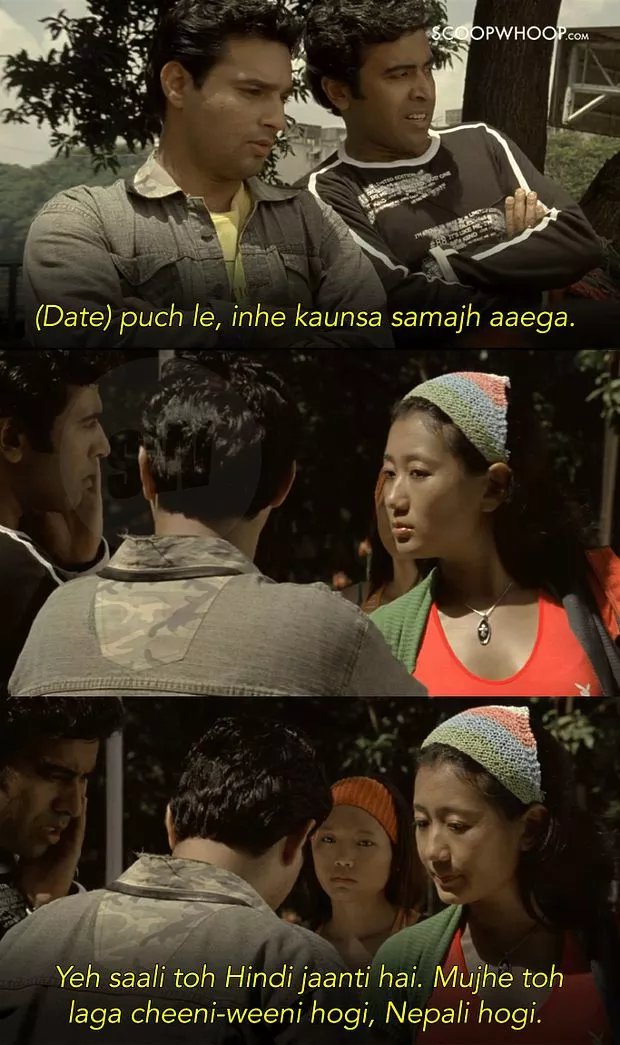
4. Jugaadistan
The series that revolves around competition and politics in colleges, also tackles issues like racism. In a scene from an episode, Lukram Smil’s character Kenny is beaten up and bullied by his own team, just because he didn’t pass the ball to his fellow teammate. He later mentions that bullying and harassment happens frequently with students from North-East and he cannot take a stand, just because they can end up harming him more. Minority students often have to deal with secluded and toxic treatment in schools and colleges, which is usually not addressed in our colleges or even in movies and hence, we hardly know of it.
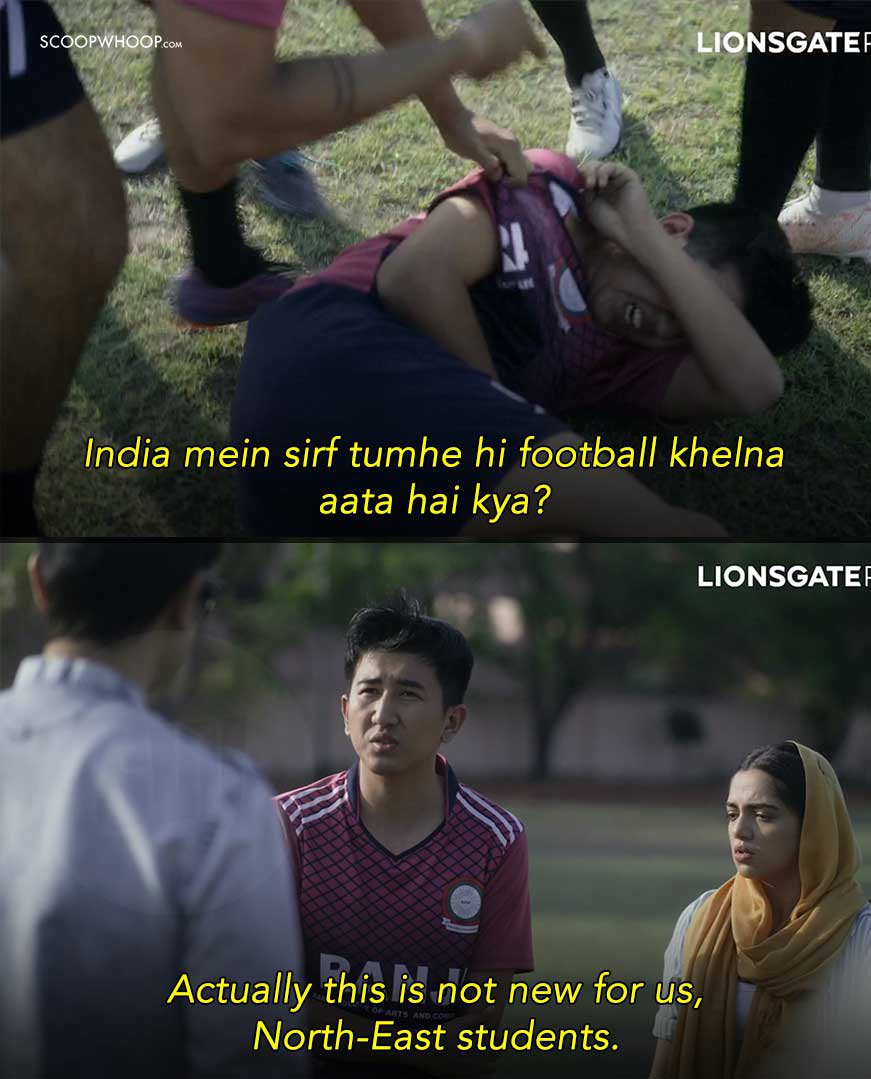
5. 2 States
While the representation of Tamilian Brahmins in the film is flawed, it does showcase the stereotypes that we bring up in casual discussions, sometimes even for comic relief. In one scene from the film, Krish’s mother comments on how Ananya is lucky to have ended up with a guy as ‘handsome’ as him. She even goes on to say that not all Tamilians are ‘fair’ which is a derogatory remark – sadly an honest representation of our society’s mentality that we come across on a regular basis.
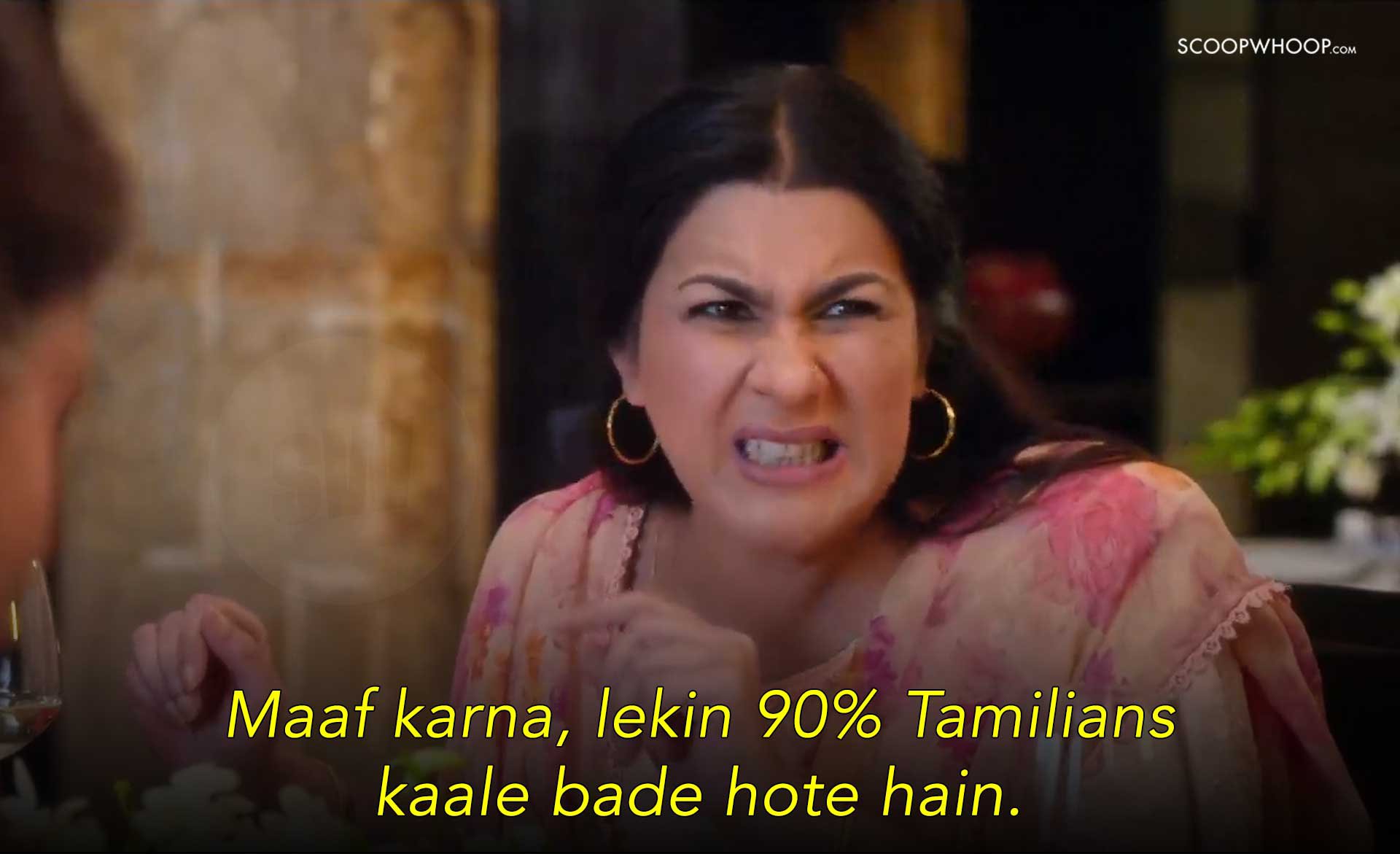
6. What The Folks
The web series is a light watch, revolving around a simple family and how they navigate relationships. In one of the episodes, Nikhil’s (the protagonist) father-in-law generalizes the work ethics of ‘South-Indians’ as a whole, just because his former boss was from Chennai. Nikhil however points out that his boss is from Chennai as well, and how he likes working for him. To sound ‘politically correct’, his father-in-law changes his statement and this goes on for a while. It is a clear example of how we stereotype people as ‘a kind’, without even realizing that we’re doing it.
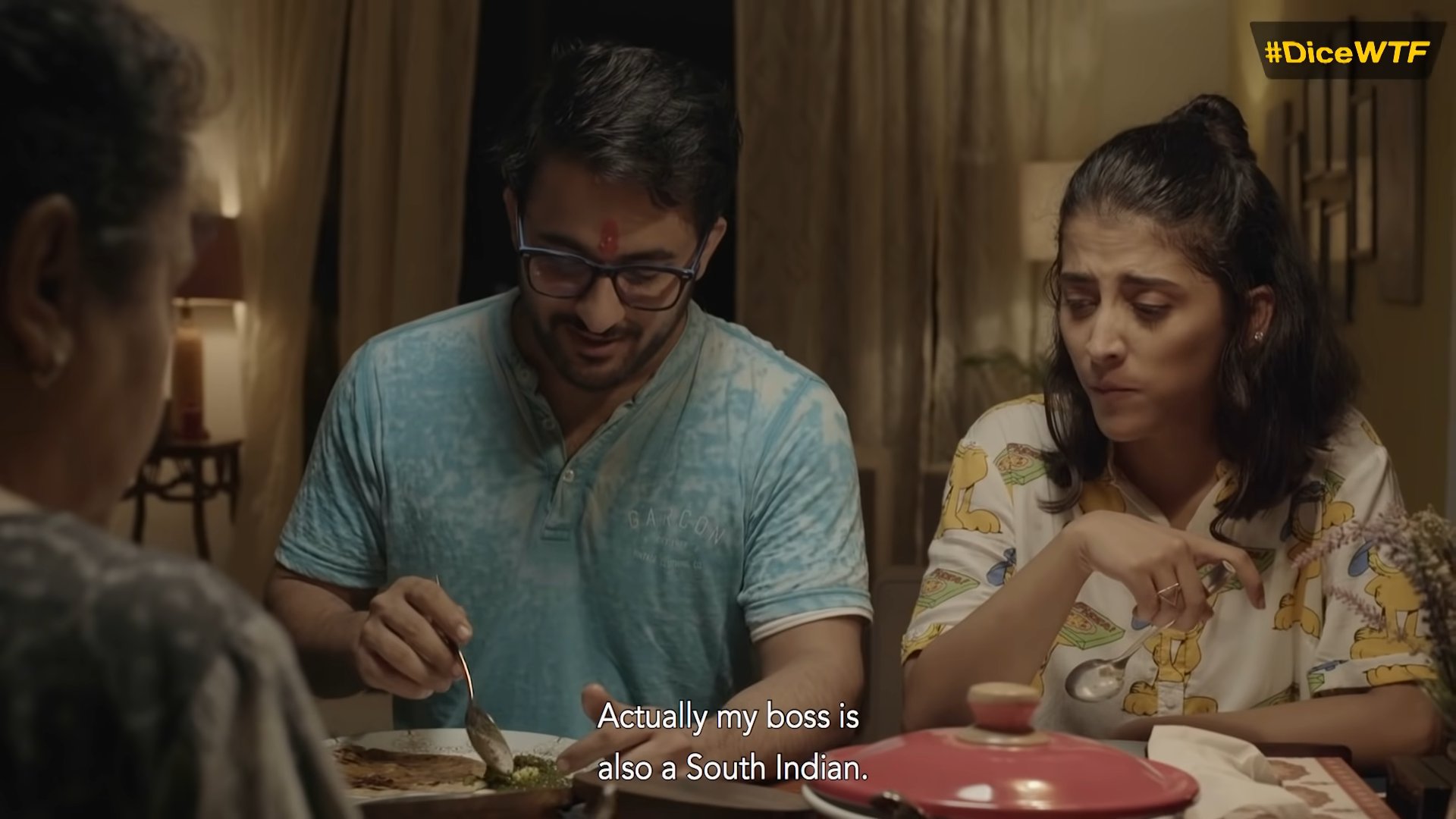
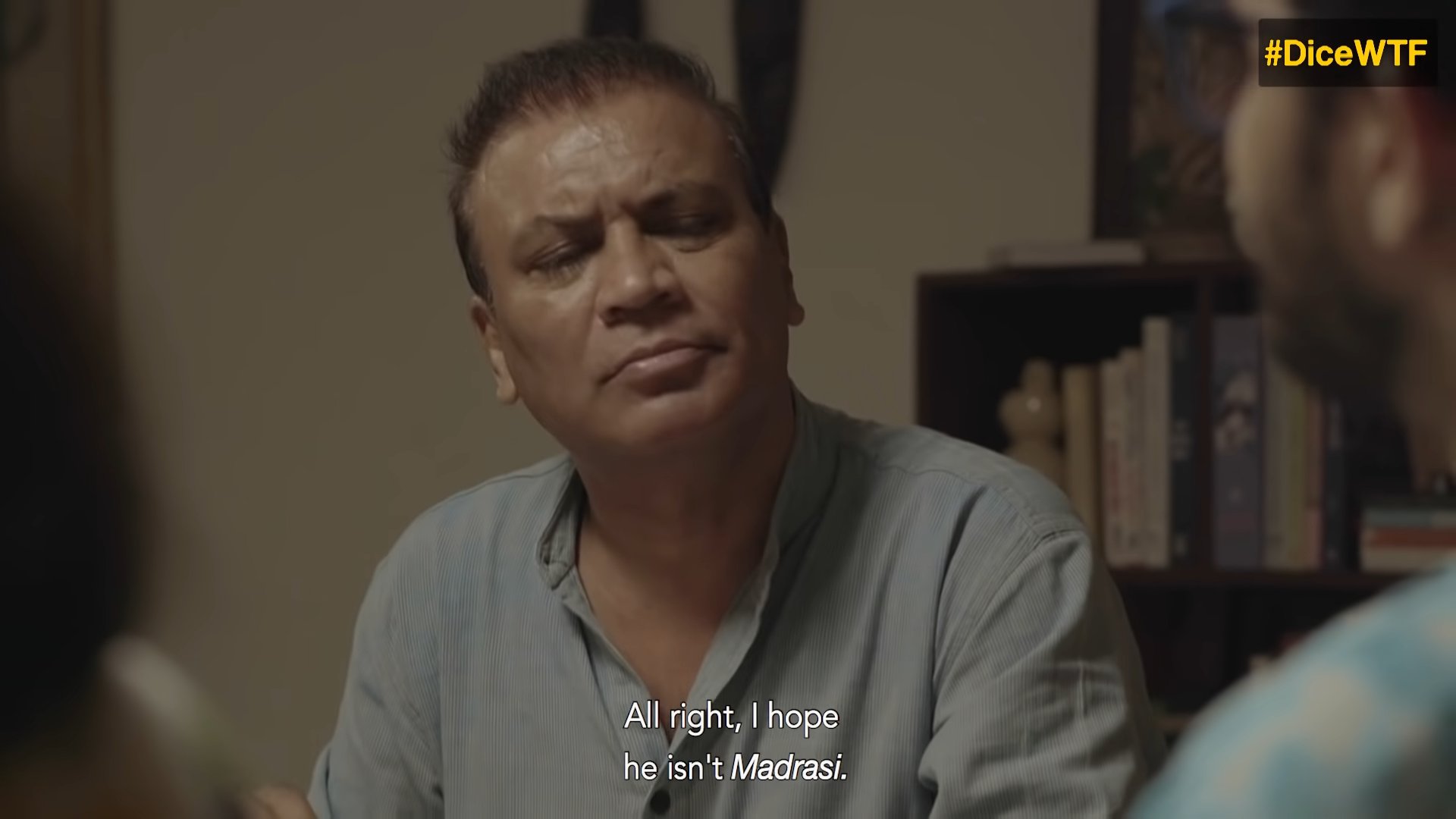
If Bollywood tries hard enough, it can be funny without being racist.




